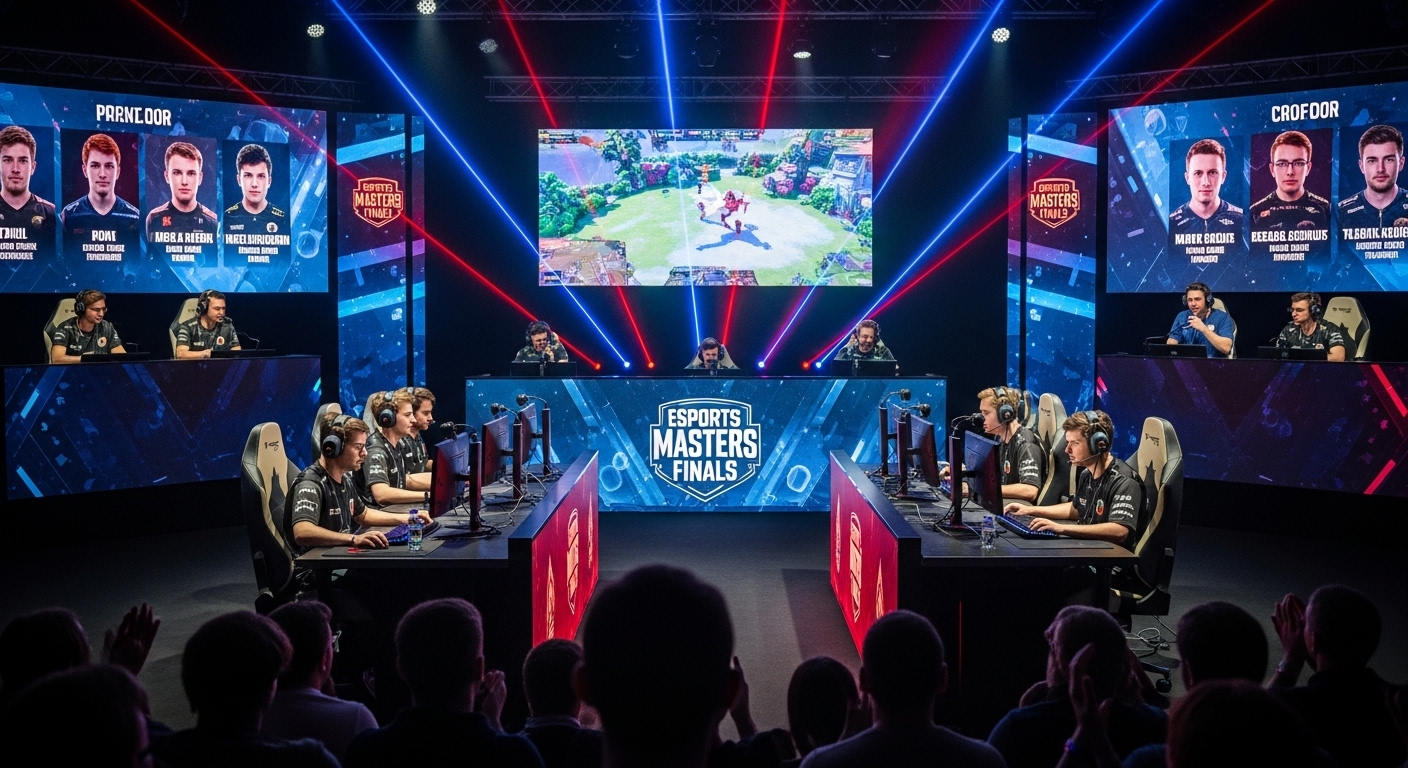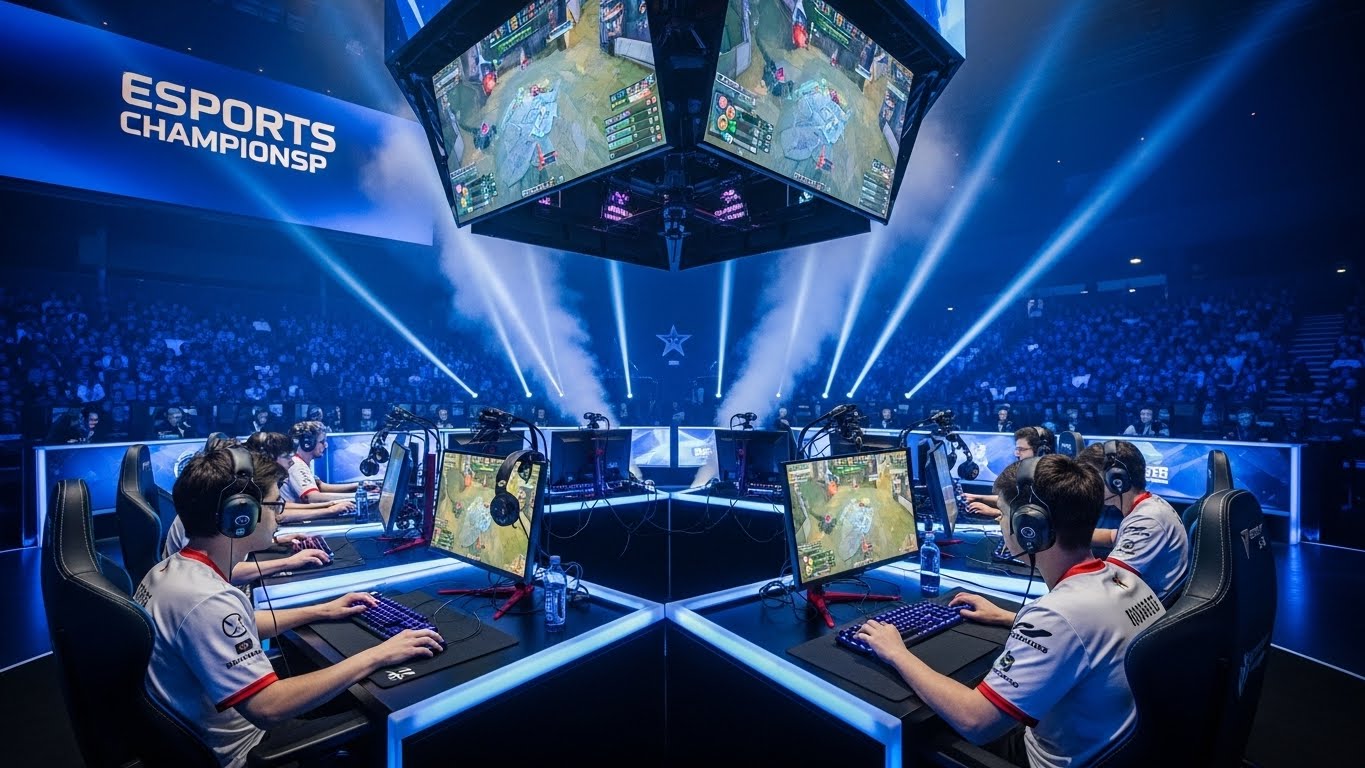Esports, short for electronic sports, has become one of the fastest-growing entertainment industries in the world. What once was considered a niche activity among gamers has now transformed into a global cultural phenomenon. The digital battlegrounds where players compete for glory, fame, and fortune attract millions of viewers and generate billions in revenue annually. In this blog post, we will explore the origins of esports, its major game genres, the professional scene, business models, challenges, and the future of this vibrant industry.
The Origins of Esports: From Basement Tournaments to Global Stages
The history of esports dates back several decades when video games first began gaining popularity. Early competitions were informal gatherings in arcades or local gaming centers. Players would challenge each other in games such as Pong and Space Invaders. These grassroots events planted the seeds for competitive gaming.
The real turning point came with the advent of the internet, allowing players to connect and compete worldwide. Games like Quake and StarCraft became the pioneers of competitive multiplayer gaming. The early 2000s saw the establishment of organized tournaments, often broadcast through fledgling streaming platforms or gaming websites. These events helped bring esports to a broader audience and set the stage for professionalization.
Popular Esports Game Genres and Their Unique Appeal
Esports is not a monolith; it spans a variety of game genres, each attracting different types of players and viewers. Understanding these genres sheds light on the diversity and appeal of esports.
Multiplayer Online Battle Arena (MOBA)
MOBAs like League of Legends and Dota 2 are some of the most popular esports games worldwide. These games feature teams of players, each controlling unique characters with distinct abilities. The objective is usually to destroy the opposing team’s base. MOBAs require strategic teamwork, fast reflexes, and deep knowledge of the game’s mechanics. Their intense, unpredictable gameplay and large player bases make them staples of the esports scene.
First-Person Shooters (FPS)
FPS games such as Counter-Strike: Global Offensive and Valorant focus on precision aiming, tactics, and team coordination. These games emphasize individual skill and teamwork in high-pressure situations. Matches often come down to split-second decisions, making for thrilling viewing experiences.
Real-Time Strategy (RTS)
RTS games like StarCraft challenge players to manage resources, build armies, and outthink their opponents in real time. These games require quick thinking and multitasking, rewarding strategic mastery and adaptability.
Fighting Games
Games like Street Fighter and Tekken represent the fighting game community within esports. These titles focus on one-on-one duels where mastery of combos, timing, and psychology is key. The scene is smaller but deeply passionate and competitive.
Battle Royale
Emerging as a major genre in recent years, Battle Royale games like Fortnite and Apex Legends blend survival, exploration, and combat. Large player pools and unpredictable gameplay make these games highly engaging for both players and spectators.
The Professional Esports Ecosystem: Players, Teams, and Organizations
The competitive esports landscape mirrors traditional sports in many ways. There are professional players, teams, coaches, analysts, and support staff, all contributing to the ecosystem.
The Players
Professional esports players often begin training at a young age, dedicating countless hours to practice and honing their skills. They undergo rigorous schedules to maintain peak performance. Physical fitness, mental health, and nutrition have become important aspects of an esports athlete’s routine.
Teams and Organizations
Teams compete in leagues and tournaments under the banners of esports organizations. These organizations provide infrastructure, coaching, marketing, and financial support. Some organizations operate similarly to traditional sports clubs, scouting talent globally and building competitive rosters.
Coaches and Analysts
Behind every successful team is a support system including coaches who design strategies and improve teamwork. Analysts study gameplay data to provide insights that help teams adapt and improve. This professional approach elevates the level of competition and entertainment.
The Business of Esports: Revenue Streams and Industry Growth
Esports has evolved into a lucrative industry with diverse revenue streams contributing to its rapid growth.
Sponsorship and Advertising
Brands across various sectors invest heavily in esports sponsorships. These partnerships often include team sponsorships, tournament naming rights, and in-game advertising. The appeal lies in esports’ young, tech-savvy audience.
Media Rights and Streaming
Broadcasting esports events generates significant revenue. Platforms specializing in live streaming esports attract millions of viewers globally. Exclusive media rights deals have become an important financial pillar for tournament organizers and leagues.
Merchandise and Ticket Sales
Merchandise sales including apparel, accessories, and in-game items provide additional income for teams and organizations. Live events also generate revenue through ticket sales, attracting fans eager to experience esports in person.
Prize Money and Player Earnings
Tournaments offer substantial prize pools, sometimes reaching millions of dollars. Players also earn through salaries, endorsements, and personal streaming channels, creating multiple income avenues.
Challenges Facing the Esports Industry
Despite its success, esports faces several challenges that could impact its future growth and stability.
Player Health and Wellbeing
The intense schedules and pressure can lead to burnout, physical injuries like repetitive strain, and mental health issues. Ensuring player welfare through support services is becoming a priority for organizations.
Regulation and Fair Play
Issues like cheating, match-fixing, and doping threaten the integrity of esports. Establishing clear rules and enforcement mechanisms is essential for maintaining credibility.
Accessibility and Inclusivity
Barriers such as equipment costs, internet access, and social acceptance limit who can participate. Promoting diversity and creating inclusive environments is necessary to expand esports further.
Market Saturation and Viewer Retention
With a growing number of tournaments and games, viewers can become overwhelmed. Maintaining high-quality content and engaging storytelling is vital to keep audiences invested.
The Future of Esports: Trends and Innovations
Looking ahead, several trends and technological advancements are poised to shape the esports landscape.
Virtual Reality and Augmented Reality
VR and AR could revolutionize gameplay and viewing experiences by adding immersive elements that bring fans closer to the action.
Artificial Intelligence and Data Analytics
AI-driven tools will enhance player training, strategy development, and viewer engagement through personalized content and improved game analysis.
Integration with Traditional Sports
Increasing collaboration between esports and traditional sports organizations will broaden audience reach and introduce new business opportunities.
Educational Pathways and Career Development
More educational institutions now offer esports scholarships and programs, preparing players for various roles within the industry beyond competitive play.
Expanding Global Reach
Emerging markets in Southeast Asia, Latin America, and Africa will continue to fuel esports growth as infrastructure and interest improve.
Conclusion: Esports as a Cultural and Competitive Phenomenon
Esports is more than just playing video games; it represents a significant shift in entertainment, competition, and community-building in the digital age. Its evolution from humble beginnings to a multi-billion dollar industry highlights the power of technology and human passion to create new forms of connection and expression.
As esports continues to mature, it will face challenges, but the opportunities for innovation, inclusion, and global impact are immense. Whether you are a player, fan, or curious observer, the world of esports offers a dynamic and exciting landscape that is shaping the future of entertainment.




